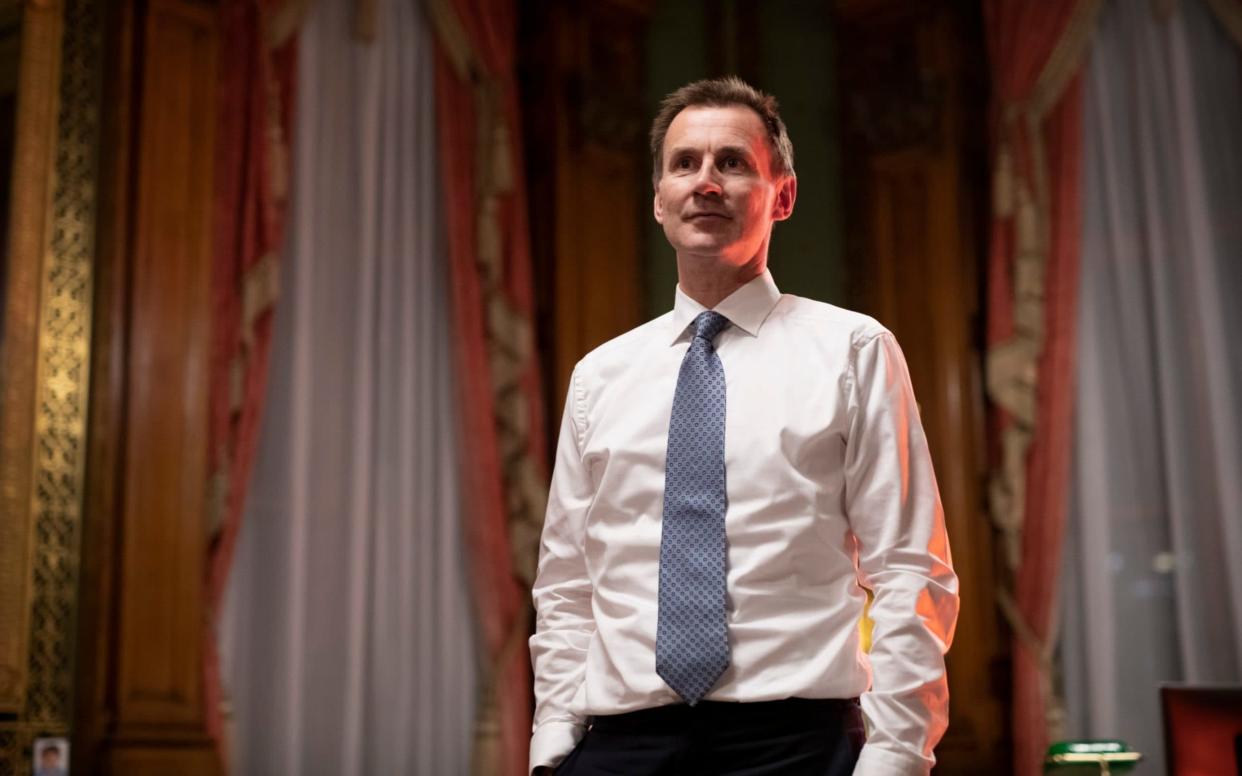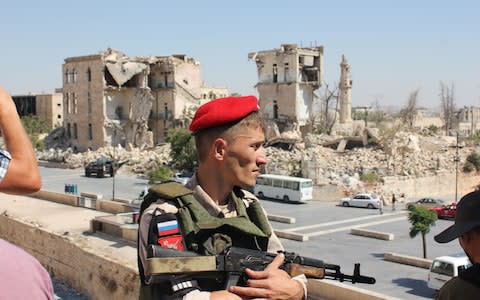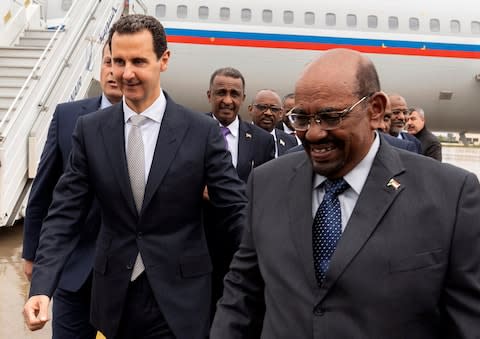'Assad will stay for a while, thanks to Russian support', says Jeremy Hunt

Jeremy Hunt, Foreign Minister, has conceded that President Bashar al-Assad will remain in place for "a while", reversing Britain's long-held position to reflect the new reality on the ground in Syria.
"The British long-standing position is that we won't have lasting peace in Syria with that (Assad-led) regime," Mr Hunt said. "But regretfully we do think he's going to be around for a while and that is because of the support that he's had from Russia.
"Russia may think that it's gained a sphere of influence. What we would say to them is: Yes - and you've also gained a responsibility,” the Foreign Minister told Sky News.
Moscow, which intervened in the war in 2015 on behalf of the Syrian government, helped swing it in Assad's favour.

While Russia's relationship with Damascus, which dates back to the Soviet era, may not be new, its dominance in the civil war helped elevated it to a position of power broker in the region.
Britain, the US and its allies meanwhile backed the opposition, though its lack of real commitment allowed President Vladimir Putin to gain the upper hand.
The UK broke off diplomatic contact with the regime in 2012 after peaceful protests were met with a brutal crackdown.
Its position since has been that Assad must go and there must be a transition of power through a democratic election.
This stipulation is also a precondition to the UK providing the country with reconstruction aid, which Damascus greatly needs to rebuild its flattened cities.
However, with Assad claiming a victory and showing no signs of any intention to step aside, the UK must decide how it now wishes to engage.

"If you're going to be involved in Syria then you need to make sure that there really is peace in Syria," Mr Hunt said. "And that means making sure that President Assad does not use chemical weapons on his own people."
The British admission also raises doubt that the Syrian leader and his inner circle will ever face trial for alleged war crimes, including sarin attacks which left more than 1,200 dead.
In December, the United Nations acknowledged it had failed to persuade Moscow, a veto-wielding member, to agree to form a sufficiently diverse body to prepare a constitution and elections in Syria.
This meant the indefinite delay of any UN-supervised elections.
The president had for years been an international pariah, but in recent months relations with the Arab world have begun to thaw.
Last week, the United Arab Emirates reopened its embassy in Damascus, marking a diplomatic boost for Assad from a US-allied Arab state that once backed rebels fighting him.
Egypt and other Arab League members have also hinted that Damascus could soon be invited back into the group it was expelled from in 2011.

